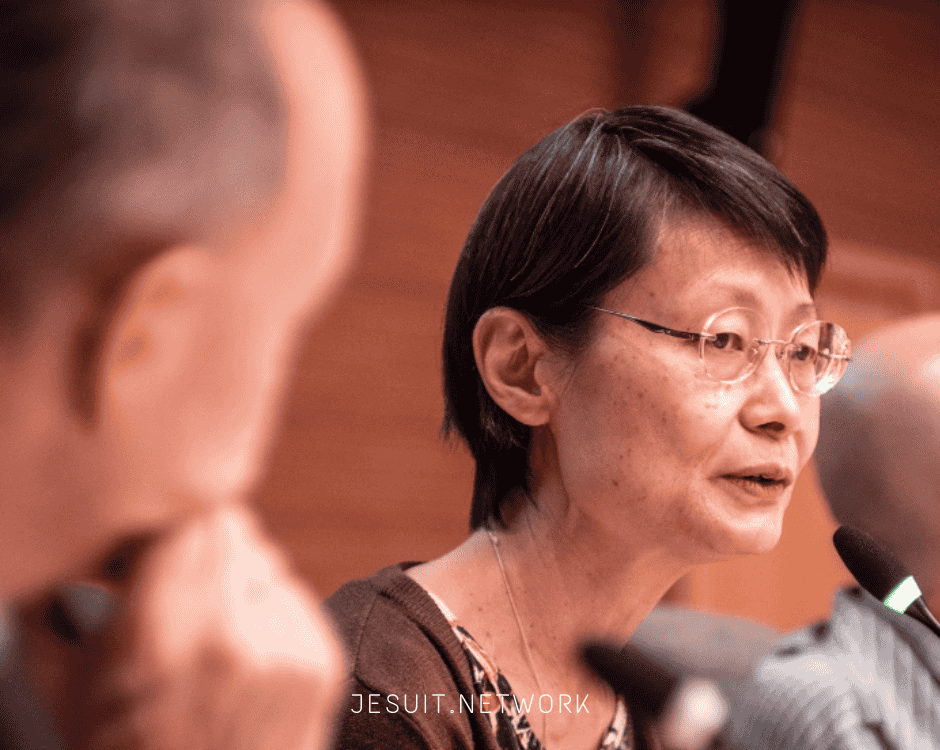Este sitio web utiliza cookies para que podamos ofrecerle la mejor experiencia de usuario posible. La información sobre cookies se almacena en su navegador y realiza funciones como reconocerle cuando vuelve a nuestro sitio web y ayudar a nuestro equipo a comprender qué secciones del sitio web le resultan más interesantes y útiles.
Re-discovering Universality
One of the most positive aspects of globalization is that it has, in fact, made communication and cooperation possible with an ease and at a scale that was unimaginable before. Now, more than ever, we see that, in all our diversity, we are, in fact, a single humanity, facing common challenges and problems, and, as GC 35 put it, we “bear a common responsibility for the welfare of the entire world and its development in a sustainable and life-giving way.”
In his speech for the conference “Networking Jesuit Higher Education” held in Mexico DF in April of 2010, Adolfo Nicolás challenged the Jesuit higher education institutions to take advantage of the possibilities offered by a globalized context. Here we extracted some of the ideas regarding what he called «re-discovering universality» that we considered important for the Jesuit Networking Project.
[The Jesuit universities] have been able to welcome more international students, and all of these cross-cultural encounters and experiences surely enrich the quality of scholarship and learning in your institutions, as well as help you to clarify your own identity and mission as Catholic, Jesuit universities.
[…] Every Catholic university, [according to John Paul II], is called on to become an effective, responsible instrument of progress.[…] I know that, in different ways, every Jesuit university is striving to become what Ignacio Ellacuría, the Jesuit rector of the Universidad Centroamericana, who was martyred 20 years ago, called a proyecto social.
I believe the challenge is to expand and build more universal, more effective international networks of Jesuit higher education […] I believe that [we do] not take sufficient advantage of what our new globalized world offers us as a possibility for greater service. [Between our schools] there is only a commonality of Ignatian inspiration rather than a coherent “Jesuit university network.”
[…] Can we not go beyond the loose family relationships we now have as institutions, and re-imagine and re-organize ourselves so that, in this globalized world, we can more effectively realize the universality which has always been part of Ignatius’ vision of the Society?
[…]I believe the challenge is to expand and build more universal, more effective international networks of Jesuit higher education. If each university, working by itself as a proyecto social, is able to accomplish so much good in society, how much more can we increase the scope of our service to the world if all the Jesuit institutions of higher education become, as it were, a single global proyecto social?
[In Ignatius’ words], the Society of Jesus accepts “charge of universities” so that the “benefits” of “improvement in learning and in living . . . be spread more universally.” The more universal good is what prompts Ignatius to accept responsibility for universities. With all the means globalization makes possible, then, surely more effective networking in the manner I have described will allow us to spread the benefits of Jesuit higher education more universally in today’s world.
This post is an extract of Fr. Adolfo Nicolas’ talk for the conference “Networking Jesuit Higher Education: Shaping the Future for a Humane, Just, Sustainable Globe” held in Mexico DF in April of 2010. The full talk can be found on this web site [English] [Spanish]





